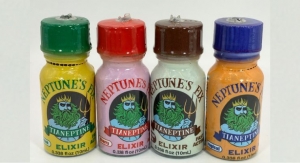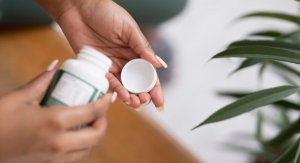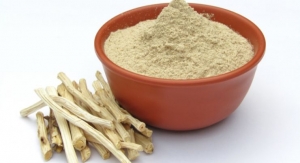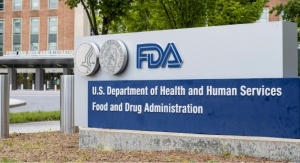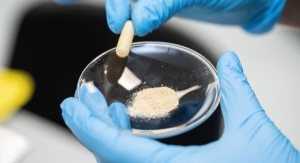09.02.14
The U.S. – China Health Products Association (USCHPA) was invited by China’s National People’s Congress (NPC) Legislative Department to discuss China’s Draft Food Safety Law, which includes regulations that oversee the dietary supplement industry. The meeting was hosted by a team of nine officials from NPC’s Legislative Department and was led by director Yuan Jie and deputy director Huang Wei.
USCHPA’s executive director Jeff Crowther and executive assistant Carrie Wang attended the meeting, which also included officials from America, Denmark, France, Germany, Ireland, Japan, New Zealand as well as two officials from the EU Delegation in Beijing and a representative from the American Chamber of Commerce.
“I’ve been living in China for nine years working on business development and regulatory advocacy. This is the first time I’ve witnessed such openness and strong willingness to engage with foreign parties. It was a wonderful opportunity for those in attendance to share their suggestions and questions directly with China’s lawmakers,” said Mr. Crowther.
Although much of the discussion was focused on the regulation of infant formula, USCHPA made the following recommendations regarding dietary supplements:
1. USCHPA asserted that dietary supplements should be regulated under food law and on a notification basis. According to the association, the current registration system is not only too costly in both time and fees, but it is also redundant in many cases. For example, if two identical products from two different manufacturers enter the market, they both must submit to registration procedures costing over $100,000 each.
2. China’s law refers to the dietary supplement industry as the health food industry, which USCHPA believes to be too broad a term. It suggested that China should seek to replace that terminology with "dietary supplement,” which it feels will bring more clarity to government, industry and consumers.
3. USCHPA recommended that health product claims should be replaced with structure function type claims similar to what is found in the U.S. Dietary Supplement Health and Education Act 1994 (DSHEA). The association suggests that this will assist in eliminating consumer confusion to the actual functions that dietary supplements play in a healthy diet. At this point in time, many Chinese consumers feel dietary supplements are a type of medicine.
4. China’s Food and Drug Administration is planning to release new regulations this year for dietary supplements that include a notification system. However, USCHPA noted that this system as it is drafted would only allow individual vitamins and some minerals to enter the market on a notification basis. Although this is a step in the right direction, USCHPA feels that it won’t be effective as most dietary supplements are made of multiple ingredients, which can include specialty nutrients such as omega-3, CoQ-10, botanicals etc. CFDA’s position on risk assessment would require products with multiple ingredients to go through registration, as they would not be eligible to proceed through the new draft notification system.
5. Currently regulations are also forcing Chinese ingredient suppliers to rely heavily on export oriented business strategies due to the lack of domestically produced dietary supplements. If the regulations become more open and transparent moving towards 100% notification, USCHPA believes that there would be many more opportunities for both foreign and domestic ingredient suppliers to sell to Chinese manufacturers of dietary supplements.
6. Ingredients that are already approved as food by China’s National Health and Family Planning Commission (NHFPC - former Ministry of Health) such as some probiotics, omega-3s as well as many other botanical and dietary ingredients, are not allowed to be sold as dietary supplements without going through a separate registration process with China’s FDA to be sold as a health product. USCHPA said this step is redundant, as NHFPC has already determined that the ingredient is safe for human consumption. The association suggested that NHFPC approved ingredients be allowed to be sold as dietary supplements without redundant testing from China’s FDA.
China’s State Council is expected to release new regulations for dietary supplements by the end of this year. USCHPA said it will be tracking its progress and submit comments when appropriate.
USCHPA’s executive director Jeff Crowther and executive assistant Carrie Wang attended the meeting, which also included officials from America, Denmark, France, Germany, Ireland, Japan, New Zealand as well as two officials from the EU Delegation in Beijing and a representative from the American Chamber of Commerce.
“I’ve been living in China for nine years working on business development and regulatory advocacy. This is the first time I’ve witnessed such openness and strong willingness to engage with foreign parties. It was a wonderful opportunity for those in attendance to share their suggestions and questions directly with China’s lawmakers,” said Mr. Crowther.
Although much of the discussion was focused on the regulation of infant formula, USCHPA made the following recommendations regarding dietary supplements:
1. USCHPA asserted that dietary supplements should be regulated under food law and on a notification basis. According to the association, the current registration system is not only too costly in both time and fees, but it is also redundant in many cases. For example, if two identical products from two different manufacturers enter the market, they both must submit to registration procedures costing over $100,000 each.
2. China’s law refers to the dietary supplement industry as the health food industry, which USCHPA believes to be too broad a term. It suggested that China should seek to replace that terminology with "dietary supplement,” which it feels will bring more clarity to government, industry and consumers.
3. USCHPA recommended that health product claims should be replaced with structure function type claims similar to what is found in the U.S. Dietary Supplement Health and Education Act 1994 (DSHEA). The association suggests that this will assist in eliminating consumer confusion to the actual functions that dietary supplements play in a healthy diet. At this point in time, many Chinese consumers feel dietary supplements are a type of medicine.
4. China’s Food and Drug Administration is planning to release new regulations this year for dietary supplements that include a notification system. However, USCHPA noted that this system as it is drafted would only allow individual vitamins and some minerals to enter the market on a notification basis. Although this is a step in the right direction, USCHPA feels that it won’t be effective as most dietary supplements are made of multiple ingredients, which can include specialty nutrients such as omega-3, CoQ-10, botanicals etc. CFDA’s position on risk assessment would require products with multiple ingredients to go through registration, as they would not be eligible to proceed through the new draft notification system.
5. Currently regulations are also forcing Chinese ingredient suppliers to rely heavily on export oriented business strategies due to the lack of domestically produced dietary supplements. If the regulations become more open and transparent moving towards 100% notification, USCHPA believes that there would be many more opportunities for both foreign and domestic ingredient suppliers to sell to Chinese manufacturers of dietary supplements.
6. Ingredients that are already approved as food by China’s National Health and Family Planning Commission (NHFPC - former Ministry of Health) such as some probiotics, omega-3s as well as many other botanical and dietary ingredients, are not allowed to be sold as dietary supplements without going through a separate registration process with China’s FDA to be sold as a health product. USCHPA said this step is redundant, as NHFPC has already determined that the ingredient is safe for human consumption. The association suggested that NHFPC approved ingredients be allowed to be sold as dietary supplements without redundant testing from China’s FDA.
China’s State Council is expected to release new regulations for dietary supplements by the end of this year. USCHPA said it will be tracking its progress and submit comments when appropriate.

